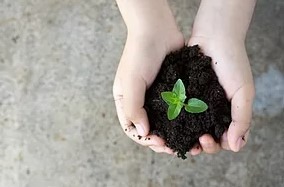It’s time to make sure that customer loyalty is driven by a growing demographic of shoppers who want to ensure their purchasing choices contribute to a better and more sustainable world
Sustainability and Smart High Street Grocers in a Post-Covid-19 Britain
by Hadie Perkas, Editor
There is nothing quite like your local high-street when it comes to getting a very clear view of changing consumer trends. Since the decimation of the high street during the 2000s economic firestorm, it has become a very nifty barometer to measure what’s in and what’s out for customers, and there’s no doubt about it, sustainability is still high on people’s agenda.
Retailers have learned the hard way that in order to survive in today’s modern high-street, they must move quickly to respond to changing trends and demands from customers. The death of so many retailers of the past has been down to an almost arrogant refusal to modify their operating models, experiences and product lines. Today’s modern retailers know this is a one-way street to closure. So, what are they doing to meet the ambitious sustainability needs of their customers?
Understanding What Customers Want
In the age of social media, customers change their minds significantly more quickly than ever before. All it takes is a mildly engaging endorsement from a Hollywood A-Lister to suddenly make plastic straws the demon spawn they are now viewed to be. Sustainability has been a big driver of change for retailers on the high-street, especially grocers, for some time now. Before Covid-19 (remember that?!) it’s all we were talking about. We even managed to eliminate plastic bags from our supermarkets. An incredible achievement.
In a world of Covid-19, an economy that’s been hard hit and dubious choices about the government when it comes to feeding our children, consumers are looking very carefully at the economic, environmental and social sustainability of the food they buy. In a recent white paper IGD outlined their hypotheses for future sustainability demands and focus point for grocers:
1. Climate change will continue to be a top priority
2. Supply chain vulnerabilities will be addressed through a focus on resilience planning
3. Efficiency improvements and financial savings remain the driving forces behind reducing food waste
4. Businesses will seek to honour packaging reduction commitments made prior to the Coronavirus pandemic
5. Businesses will continue working on sustainability strategies, much of which may not be visible to shoppers
The Sustainability Tipping Point
“Effective sustainability measures are valuable, even if customers don’t notice them. Nevertheless, it is obviously in retailers’ interests to pursue schemes that capture the public imagination and participation, where possible.”
It appears that Covid-19 has expedited a trend that was already blossoming – a really substantial move to sustainable grocery. Whether its stores are offering refillable containers and dispensers so that plastic is almost entirely eliminated from the buyer experience, or food waste being actively donated to food banks or feeding programmes, a post-Covid-19 world is demanding better accountability. The opportunity for grocers is to tell their customers exactly what they are doing about it and social media presence is the perfect platform.
Consumers have had an opportunity to reflect on what’s important and this is a tipping point for high-street grocers to respond. It’s time to make sure that customer loyalty is driven by a growing demographic of shoppers who want to ensure their purchasing choices contribute to a better and more sustainable world. Smart retailers will give them this option, and smart shoppers will keep coming back to those making it easy for them to be feel better about their shopping choices.




